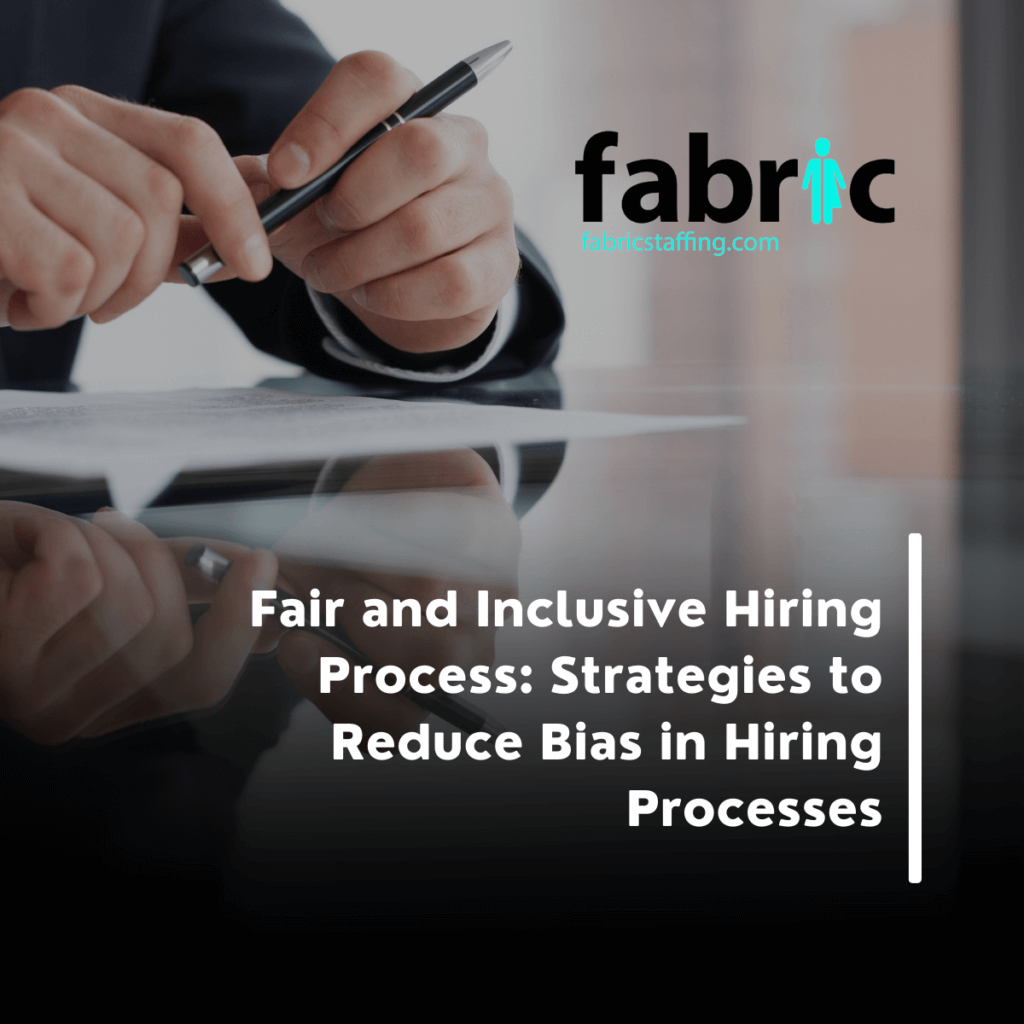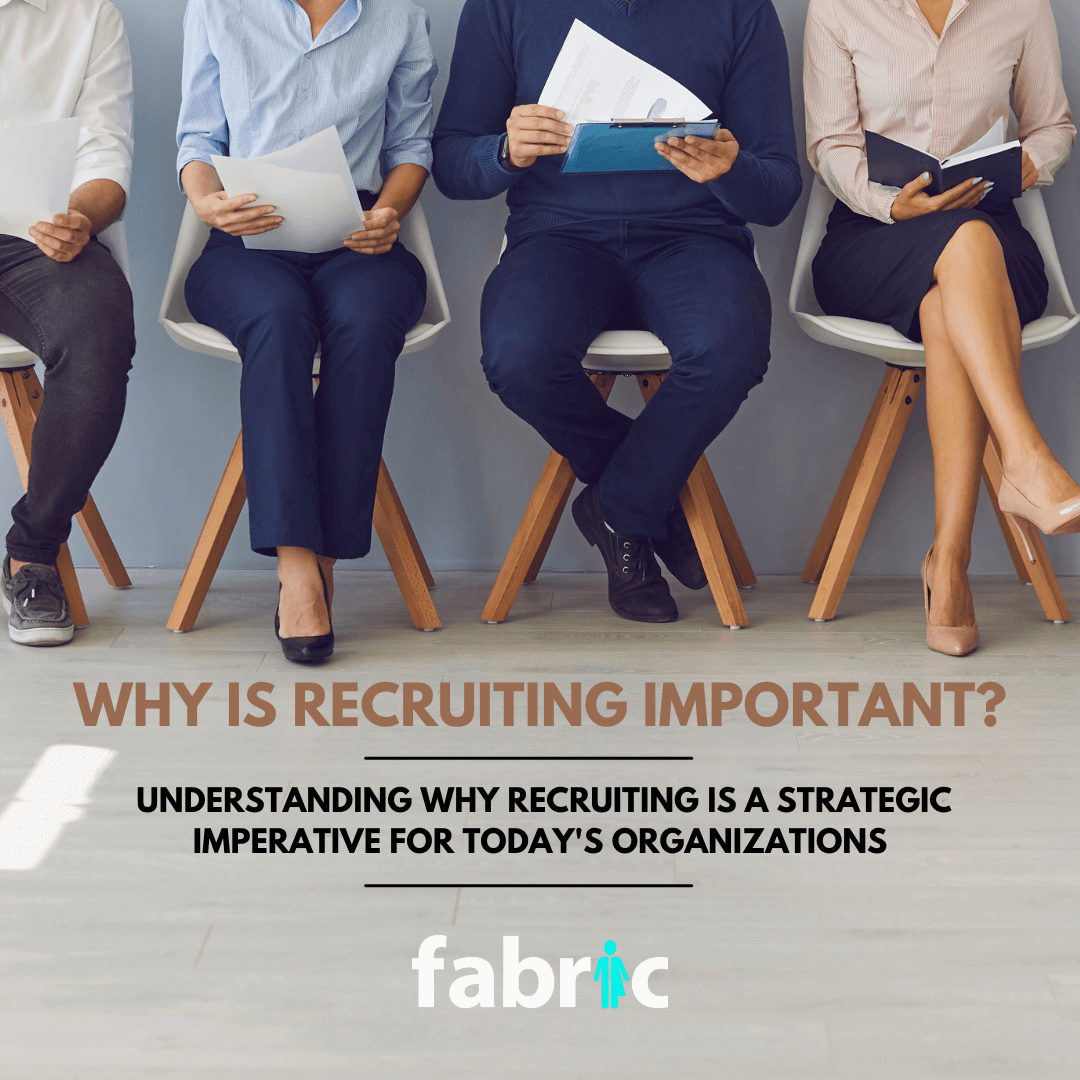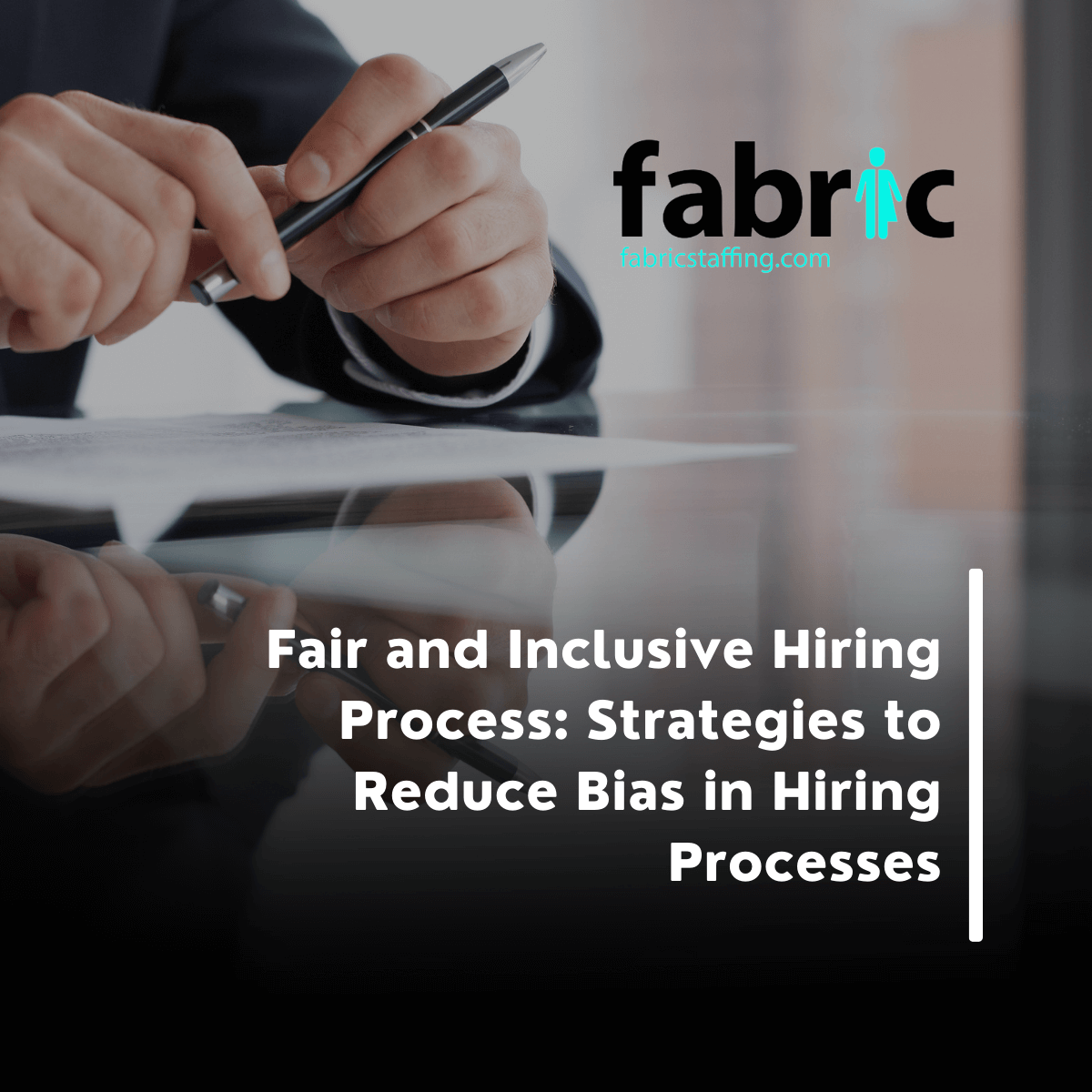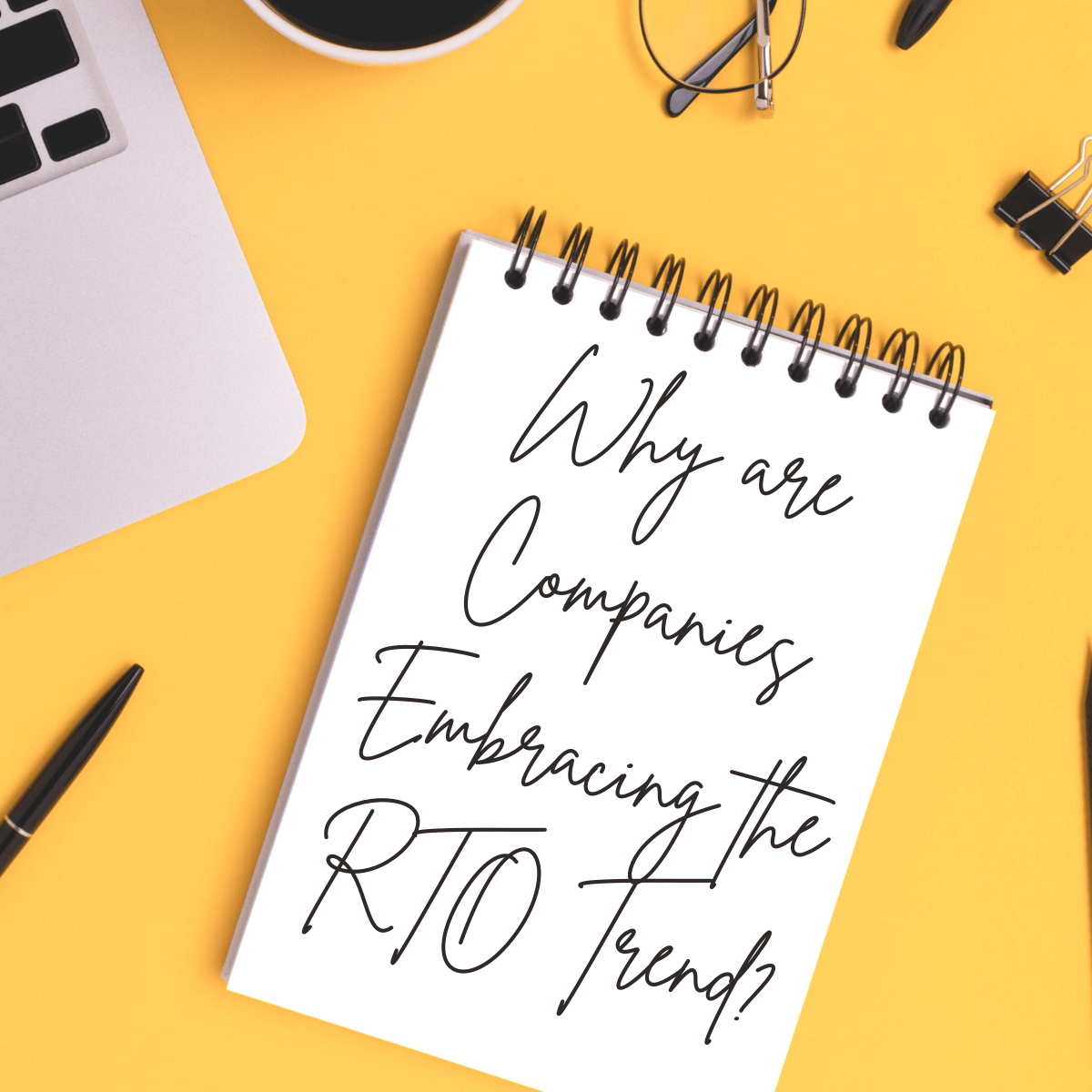Inclusive Hiring: Strategies that Reduce Bias in Recruiting
Companies are constantly striving to attract and retain top talent. One crucial aspect of this endeavor is ensuring that the hiring process is fair, unbiased, and inclusive.
Not only is it the right thing to do, but research has shown that fostering diversity and inclusion leads to higher levels of employee engagement and overall business success. However, achieving a truly equitable hiring process requires proactive measures to identify and mitigate unconscious biases that may influence decision-making.
So, how can companies reduce bias in their hiring processes while simultaneously promoting diversity, equity, and inclusion (DEI)? Let’s explore some effective strategies and best practices.

Strategies to Reduce Bias in Hiring Processes:
Establish Clear Criteria
The foundation of a fair hiring process begins with clearly defining the skills, qualifications, and attributes necessary for the job role. By focusing on job-related factors rather than personal characteristics, companies can ensure that their evaluation criteria are relevant and objective. This not only helps hiring managers make more informed decisions but also minimizes the potential for bias to creep into the selection process.
Structured Interviews
One effective way to standardize the evaluation process is through structured interviews. By asking every candidate the same set of predetermined questions, hiring managers can ensure consistency and fairness. This approach allows for a more objective assessment of each candidate’s qualifications and reduces the likelihood of bias influencing hiring decisions. As Siraina, one of Fabric Staffing’s amazing recruiters, advises, “Create a set of questions that relate to the job and industry that need to be answered in every interview.”
 Diverse Interview Panels
Diverse Interview Panels
Including a diverse set of interviewers in the hiring process can help mitigate unconscious biases and bring different perspectives to the table. When multiple voices are involved in the evaluation process, it becomes easier to identify and challenge any individual biases that may arise. Additionally, candidates are more likely to perceive the process as fair and inclusive when they see a diverse panel of interviewers. Our senior recruiter, GV, suggests, “Candidates will love to see that you put your money where your mouth is about diversity!”
Blind Resume Review
Implementing name-blind hiring practices during the initial screening stage can help mitigate unconscious biases and promote fairer evaluations based solely on qualifications, skills, and experience. By removing identifying information such as names, genders, ages, and educational backgrounds from resumes, hiring managers can focus solely on the candidate’s relevant attributes. This approach not only reduces the potential for bias but also expands the talent pool by attracting candidates from diverse backgrounds.
Skills Assessments and Work Samples
Incorporating skills assessments or work samples as part of the evaluation process allows candidates to demonstrate their abilities directly. This objective measure reduces reliance on subjective impressions and provides hiring managers with concrete evidence of each candidate’s capabilities. By focusing on tangible skills and performance indicators, companies can make more informed hiring decisions and minimize the impact of unconscious biases.
Training and Education
Providing training to hiring managers and interviewers on unconscious bias awareness is essential for fostering a culture of diversity and inclusion. By raising awareness about common biases and their impact on decision-making processes, companies can empower their teams to recognize and mitigate bias effectively. Continuous education and open dialogue about DEI issues help create a more inclusive hiring environment and promote fair practices across the organization.
Establish Diversity Goals
Setting diversity goals for the hiring process and holding recruiters and hiring managers accountable for meeting these goals is crucial for driving meaningful change. By establishing clear expectations and metrics for diversity recruitment efforts, companies can ensure that efforts are made to attract and hire candidates from underrepresented groups. This proactive approach demonstrates a commitment to diversity and inclusion and helps create a more equitable workforce.
Implement Technology Solutions
Utilizing technology solutions such as applicant tracking systems (ATS) can streamline the hiring process and help remove identifying information from resumes. These tools not only standardize the screening process but also facilitate blind resume review, reducing the potential for bias at every stage of the recruitment process. By leveraging technology effectively, companies can enhance the fairness and efficiency of their hiring processes while promoting diversity and inclusion.
Continuous Evaluation and Feedback
Regularly reviewing the hiring process to identify areas where bias may be present and implementing changes as needed is essential for ongoing improvement. Encouraging feedback from candidates and employees provides valuable insights into the effectiveness of DEI initiatives and helps identify opportunities for enhancement. By continuously evaluating and refining their hiring practices, companies can create a more inclusive and equitable recruitment process.
Promote Diversity and Inclusion
Fostering a culture of diversity and inclusion within the organization is key to attracting and retaining top talent from diverse backgrounds. Emphasizing the value of diversity in decision-making processes and creating an environment where all employees feel respected and included is essential. By promoting diversity and inclusion both internally and externally, companies can strengthen their employer brand and position themselves as leaders in DEI efforts.
In conclusion, reducing bias in the hiring process requires a multifaceted approach that encompasses both structural changes and cultural shifts within organizations. By implementing strategies such as standardized interviews, blind resume reviews, and diverse interview panels, companies can create a more equitable and inclusive hiring process. Additionally, ongoing education, accountability, and a commitment to diversity goals are essential for driving meaningful change and fostering a culture of diversity and inclusion. As businesses continue to prioritize DEI efforts, they not only enhance their reputation as employers of choice but also unlock the full potential of their workforce, driving innovation and success in the long run.
If you want more information on fair and inclusive hiring processes or strategies to reduce bias in your hiring processes, please reach out to us! info@fabricstaffing.com


 Diverse Interview Panels
Diverse Interview Panels







